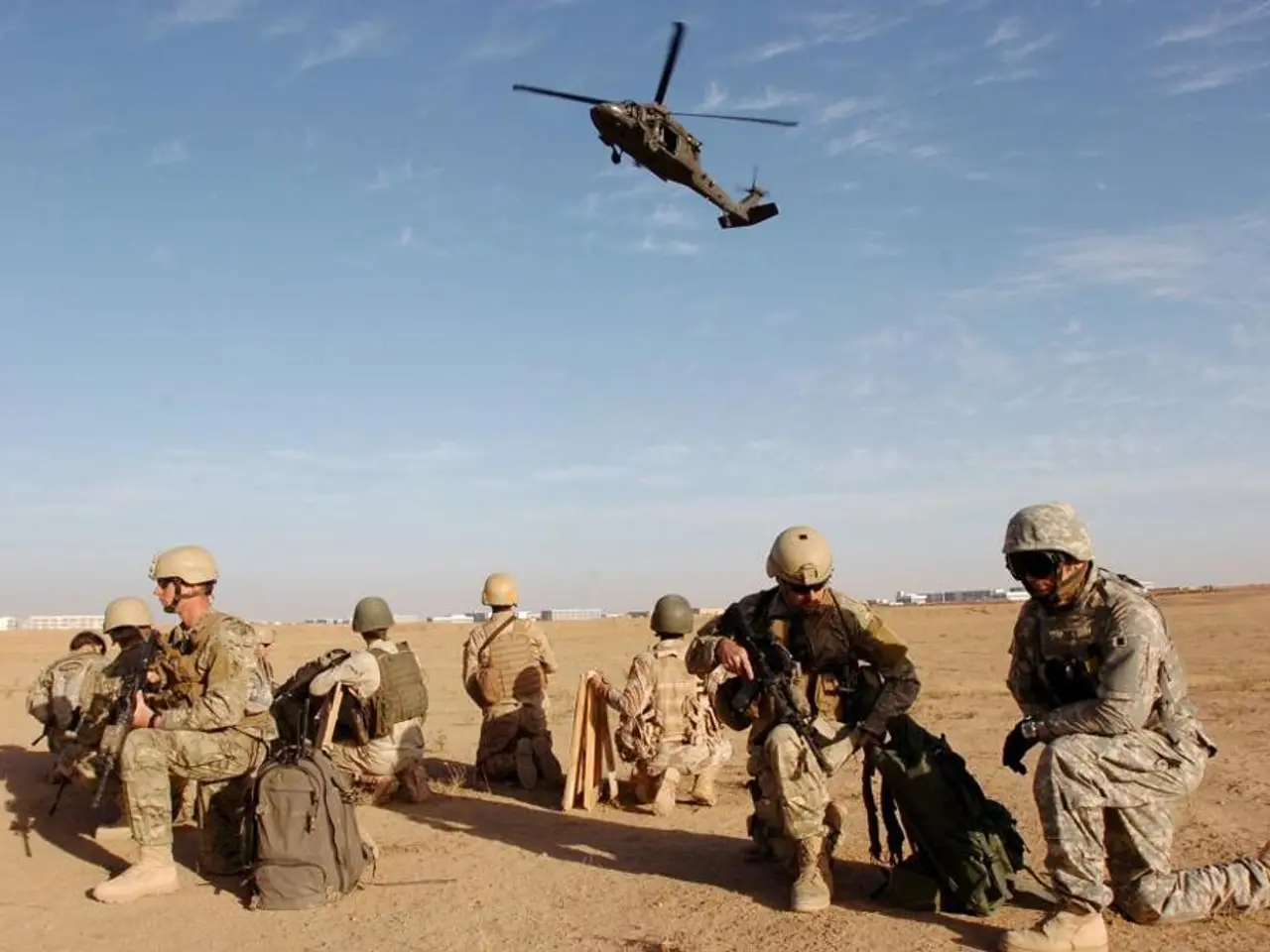Unsuccessful Constitutional Challenge Against German Drone Operations Conducted Through Ramstein Air Base - Unsuccessful Constitutional Complaint Over US Drones Passing Through Ramstein Air Base
In a case that has been pending for over a decade, two Yemeni nationals have filed a constitutional complaint against the US military's drone operations controlled via Ramstein Air Base in Germany. The complainants allege that their relatives were killed in a US drone strike in Yemen in 2012, and they hold both the US military and the German federal government responsible due to the significant role of the military base in Rhineland-Palatinate in these operations.
The jurisdiction of the German Federal Constitutional Court (Bundesverfassungsgericht) primarily concerns the protection of the German Basic Law (Grundgesetz) by reviewing judicial, administrative actions, and legislation in Germany to ensure they comply with the constitution. However, the court's jurisdiction in this case hinges on whether these operations implicate constitutional rights protections under German law, especially considering Germany’s role and control in facilitating such operations on its territory.
The Federal Constitutional Court primarily exercises judicial review within the German domestic legal framework and its constitution. It hears cases alleging infringement of constitutional rights by German or federal authorities, including indirect state actions—for example, if German government or administrative bodies were involved in authorizing or facilitating the US drone strikes.
The court could hear complaints from Yemeni nationals if these individuals allege that the German state violated their constitutional rights through its involvement or cooperation in the drone operations via Ramstein Air Base. This would be based on constitutional protections like the right to life and human dignity under German Basic Law, as applied to government actions.
However, the court does not have jurisdiction to directly adjudicate US military actions or international law violations per se unless there is a clear connection to German constitutional rights or legal responsibilities arising from Germany’s cooperation or control over the airbase. International legal obligations such as respect for international humanitarian law (IHL) and arms export controls may influence German government practices and licensing related to military cooperation.
In conclusion, Yemeni nationals' constitutional complaints alleging violations due to US drone strikes controlled from Ramstein Air Base could be admissible if they demonstrate a breach of constitutional rights owed to them by the German state through its control or support role. The Federal Constitutional Court’s jurisdiction extends to reviewing such constitutional issues but does not extend to directly challenging US military operations except insofar as German constitutional law is implicated.
The case is being heard at the Federal Constitutional Court in Karlsruhe, Germany. The complainants are seeking justice for the loss of their loved ones and accountability for the actions taken by the US military and the German government. The outcome of this case could set a precedent for future cases involving international military operations and the role of host countries in such operations.
- This case, if the Yemeni nationals can demonstrate a breach of their constitutional rights by the German state through its control or support role in the drone operations via Ramstein Air Base, could potentially involve the Federal Constitutional Court in reviewing issues related to Germany's employment policy, specifically vocational training, as the court has jurisdiction over constitutional protections like the right to life and human dignity.
- If the Yemeni nationals' complaints against the US military's drone operations at Ramstein Air Base are admitted, politics and general news could significantly focus on the court's decisions, as the case might set a precedent for host countries' involvement in international military operations and their responsibilities under international humanitarian law (IHL) and arms export controls, which may impact future military cooperation agreements.








